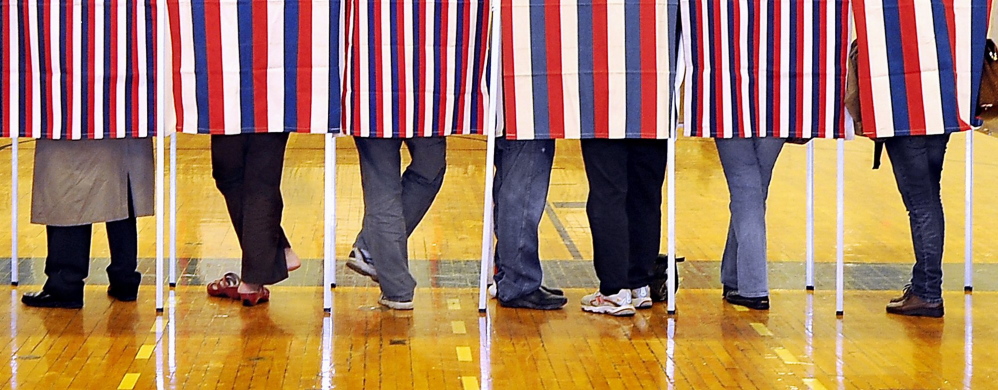For over 100 years, state law has allowed ordinary Mainers to put policy questions to voters at the ballot box through petition drives. The citizen initiative process is a cornerstone of participatory democracy here.
Now two constitutional amendments banning further hunting-related citizen initiatives are before the Legislature – and lawmakers should reject them as an effort to weaken the public’s right to directly influence the political process.
L.D. 754 would exempt hunting and fishing policies from the people’s veto law, and L.D. 1084 would bar all wildlife issues. The measures are being put forth after a long and heated 2014 campaign on Question 1: a referendum proposal to ban the use of bait, dogs and traps to hunt bears. “Yes on 1” (which the Portland Press Herald opposed) was the second such effort, and, like its 2004 predecessor, it was defeated.
Supporters of the new bills say wildlife management practices are complex and should be determined by experts in the field, not decided at the ballot box by voters influenced by appeals to their emotions. But citizen initiatives have dealt with other weighty, controversial issues – including income tax reform, the Taxpayer Bill of Rights, gambling and medical cannabis – and nobody has questioned the average Mainer’s capacity to make well-informed decisions on these subjects.
What’s more, there are other ways to make sure that everyone’s up to speed on pending citizen initiatives. For instance, in Oregon, a panel made up of 24 randomly selected people studies each ballot proposal, hears testimony on both sides of the issue and writes a summary of the arguments for and against the measure, without taking a stance either way. The statements are provided to all voters, who have found them highly useful, research has shown.
It also has been argued that without a constitutional amendment, the Humane Society of the United States, which funded the “Yes on 1” campaign, would keep trying to send proposals to restrict bear baiting back to Maine voters. That’s a reasonable concern, and animal rights activists are considering further such efforts. Gay rights, same-sex marriage and gambling referendums have all appeared on the ballot at least twice.
But again, there are ways to keep the referendum ballot from being overcrowded, experts have found. Five states prohibit measures that are the same as or similar to previous ballot proposals within a specified time frame (from two years in Mississippi to five years in Wyoming). That type of limit would be vastly more fair than the narrowly focused proposed lifetime ban on wildlife management initiatives.
Maine is justifiably proud of residents’ high level of commitment to democracy, including their participation in citizen initiative efforts. There are ways that legislators can make the people’s veto process more deliberative and informative, but banning hunting-related referendums isn’t one of them, and should be rejected.
Send questions/comments to the editors.


